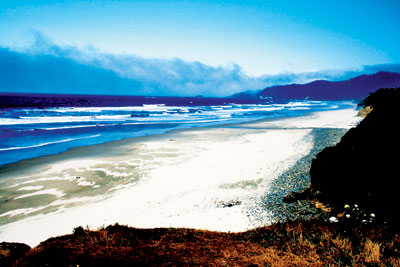All Nonfiction
- Bullying
- Books
- Academic
- Author Interviews
- Celebrity interviews
- College Articles
- College Essays
- Educator of the Year
- Heroes
- Interviews
- Memoir
- Personal Experience
- Sports
- Travel & Culture
All Opinions
- Bullying
- Current Events / Politics
- Discrimination
- Drugs / Alcohol / Smoking
- Entertainment / Celebrities
- Environment
- Love / Relationships
- Movies / Music / TV
- Pop Culture / Trends
- School / College
- Social Issues / Civics
- Spirituality / Religion
- Sports / Hobbies
All Hot Topics
- Bullying
- Community Service
- Environment
- Health
- Letters to the Editor
- Pride & Prejudice
- What Matters
- Back
Summer Guide
- Program Links
- Program Reviews
- Back
College Guide
- College Links
- College Reviews
- College Essays
- College Articles
- Back
Can't Find Nemo
I remember watching the movie “Finding Nemo” many times on the television when I was a little girl. I was always mesmerized by the unique fish and brightly colored coral of the Great Barrier Reef, which the movie presented. What would always make me smile was the fact that all that beauty does exists, it wasn’t just the imagination of the film creators, and one of my biggest dreams as a little girl was to visit that magical place. However, if I could face my child self, how can tell her that this extraordinary place is slowly disappearing? The reality is that by the year 2050, the Great Barrier Reef will have disappeared due to human impact. If the situation doesn’t change, there could be annual ecological destructions in the region for the next 20 years.
The Great Barrier Reef is a region of the northeastern coast of Australia. It is very important, not only to the environment but also to us. The corals help the ocean undergo natural process such as purification and recycling. They also provide habitats for many species of plants and animals. To us, the reef provides natural resources, including food and medicine. This region is considered to be “an Underwater Pharmacy,” because the coral provides medication for many inflammatory disorders, such as asthma and arthritis (The Natural Conservancy). The reef is also helpful because it is assisting scientists in discovering more about the oceans, and the mysteries they contain.
However, last year in 2016, the Great Barrier Reef in Australia experienced one if it’s worst bleachings in a decade. The high water temperatures caused the worst destruction of corals ever recorded. This year, the reef experienced another bleaching, for the second year in a row, which puts the ecosystem and the organisms living there in danger. Bleaching means that the coral has lost zooxanthella, an element which helps corals turn sunlight into food. Losing its main source of food, the vibrant and multicolored corals are now white and dull. According to a study from the ARC Centre “67% of corals died in the reef's worst-hit northern section,” (BBC).
The high temperatures of the water, which exceeded the monthly average, are the main cause of the coral damage. Scientists claim that the temperatures have risen due to climate change, as Dr. Hogget explains “We keep pumping carbon dioxide into the atmosphere, and this happened absolutely because of that,” (BBC). Although the coral can recover from these causes, scientists worry that the reef will have difficulty so because the temperatures continue to remain high. Many are frightened for the reef’s long term health and how this will affect not only the ocean, but humans as well.
The effects of the increasing warming temperatures are visible, they are unfolding on the bays of the Australian Coast. The diverse species living in region are going through the process of becoming endangered or extinct, many are adapting to the changes being brought by the warm temperatures. As long we humans keep polluting, the worse the situation will become worse, as David Attenborough, an observer of this Reef, states “The... perils brought by climate change – an increase in the temperature of the ocean and in its acidity – threaten its very existence… If they continue to rise at the present rate, the reefs will be gone within decades. And that would be a global catastrophe,” (Couriermail).
If this ecological catastrophe continues, the generations to come will not be able to experience the beauty that this rare place has to offer and the many benefits that this environment has to offer will perish. We are responsable of the Great Barrier Reef dieing, and maybe even its death in the future. These “rainforests of the ocean” are being destroyed, with little chances to recover because of the impacts we have on it. This region is very important, and it should be protected. I believe a little girl would want that.

Similar Articles
JOIN THE DISCUSSION
This article has 0 comments.
